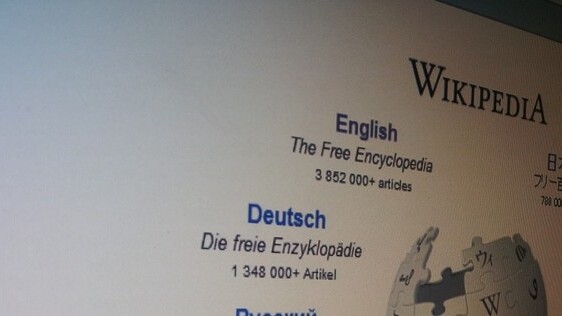
Two so-called ‘typosquatting’ websites that directed unsuspecting Internet users to sites pretending to be Wikipedia and Twitter have been forced offline, with the respective owners fined £100,000 ($156,000) each.
The act of typosquatting involves individuals or companies registering domain names that are similar to other popular domain names, but differ by a character or two. They then seek to capitalize on Internet users hitting the wrong key on their keyboard and inadvertently landing on their site instead.
Whilst some typosquatters make no attempt to mimic the genuine website through its content or design, visitors to ‘Wikapedia.com’ and ‘Twtter.com’ were presented with similar-looking fake versions of the real sites, except they contained adverts for iPad and MacBook competitions.
The fines were dished out not by an Internet regulatory body though, but instead by PhonepayPlus which is a UK body responsible for regulating premium rate telephone services (PRS). It said in an announcement today:
“In both cases, the landing pages for the ‘squatted’ sites looked like the genuine sites the consumer was searching for – the ‘squatted’ sites used the same logos, colouring and fonts.
These ‘squatted’ sites informed consumers that they had won or could claim a prize, such as an iPad. In both cases, consumers were given the impression that to enter or claim they simply had to enter their contact details and answer some questions.”
Consumers were asked to input their mobile phone number, after which they would receive a PIN number on their mobile phones to use for the competitions. They would then receive texts on their mobile phones asking them quiz and survey questions, which were charged at £1.50 for each one sent, and a further £1.50 if they answered. One complainant said that his fiancée “was tricked into a service on YouTube” and was charged £63 in total.
We’ve previously written about the issue of cybersquatting and typosquatting, and there have been many notable cases over the years. Back in December we reported that 80% of mis-typed URLs end up on typosquatting sites, this followed a month after another Twitter-copycat site – Twiter.com – was forced offline for misleading Internet users.
In addition to the fines, the two companies in question in the latest case, Amsterdam-based R&D Media Europe and Unavalley BV, were ordered to refund consumers after the tribunal found that that they had “breached the Code of Practice as a result of promotions that had misled consumers and that had not provided clear information about pricing.”
The watchdog has also now published clear guidance to premium rate providers about how services should be marketed online and digitally.
Get the TNW newsletter
Get the most important tech news in your inbox each week.





